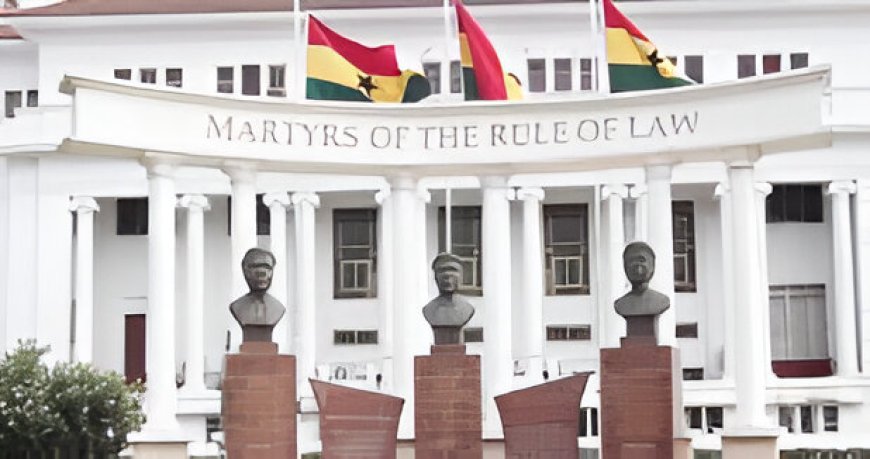Ghana’s Supreme Court Has Become Confused and Dangerous - Dr. Lawrence

Recent criticisms of Ghana's judiciary have highlighted a troubling perception of bias and predictability. Notably, former Chief Justice Sophia Akuffo commented that the Supreme Court has become "too predictable," a sentiment echoed by Hon.
Ken Dapaah, who accused the judiciary of favoring the government. These assertions suggest a loss of public confidence in the court's impartiality, with many Ghanaians believing that cases involving the New Patriotic Party (NPP) have predetermined outcomes.
One controversial ruling by the Supreme Court declared that the birth certificate is not a valid proof of Ghanaian citizenship. This decision raised eyebrows because the birth certificate is the foundational document used to obtain a Ghanaian passport and the Ghana Card, both of which are widely accepted as proof of identity and citizenship. The legitimacy of these key documents should be questioned if the birth certificate is deemed insufficient.
The inconsistency of the judiciary's decisions is further exemplified by its handling of parliamentary cases. The Supreme Court barred Hon. James Gyakye Quayson from serving his constituency in Assin North for several months, leaving the people without representation.
However, the same court was reluctant to make a similar ruling against three NPP Members of Parliament, who were not penalized by missing even a single session. Interestingly, a lower court in Techiman North allowed the local MP to continue serving while his case was pending, raising questions about the rationality of the Supreme Court's approach compared to a lower court's judgment.
In what appears to be a decision driven by personal interests, the Supreme Court recently ruled in favor of Hon. Afenyo-Markin's request, effectively shutting down parliament. This move has been seen by many as a power play rather than a legal necessity. Afenyo-Markin's insistence on being recognized as the Majority Leader for "spiritual" reasons further complicates the situation, exposing the Supreme Court's susceptibility to political manipulation.
Moreover, the Supreme Court's silence on the lack of parliamentary representation for the people of Santrokofi, Akpafu, Likpe, and Lolobi (SALL) over four years is telling. Had this situation occurred in an NPP stronghold, it is unlikely the court would have allowed such a lapse. The unequal application of justice based on political affiliations is a dangerous precedent. If Ghanaians do not address this now, the Supreme Court may one day make a ruling that disregards the constitution altogether, under the guise of "interpretation."
Ghanaians must recognize that the judiciary's decisions have far-reaching implications for everyone. When the Supreme Court erodes fundamental rights, such as the validity of the birth certificate, it sets a precedent that could affect any citizen. To restore confidence in our legal system, we must start by resetting the Supreme Court. This is not just a political issue but a matter of national interest that impacts the democratic foundation of Ghana.
In the upcoming election on December 7, it is crucial for voters to consider the future of the judiciary and the nation as a whole. A vote for John Mahama and the National Democratic Congress (NDC) is a vote to restore balance and integrity to Ghana's judicial system. The time has come to uncover what has led the Supreme Court astray and to bring about much-needed reforms.
Let us make our voices heard:
Vote for Number 8.
Vote for the Umbrella.
Aba no, Mahama afa.
Signed,
Dr. Lawrence
Founder of the Diaspora Progressive Movement, USA





